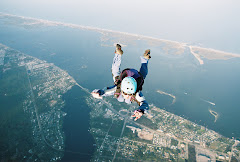The terms training and development are often used interchangeably, when the skills they provide are very different. Professionally speaking, most trainers are really developers, but since that industries rarely understand the difference, we identify ourselves as trainers. The process of training refers to providing learning for a precise skill or task that will be applied to a similar task. For example, when the Mature Generation of employees (born before 1948) were introduced to computers Instructors anchored the learning by letting the trainees already know they were familiar with the keyboard. Obviously, the tablet and I phone use the same approach. The training sets the anchor for the learning because once a skill is learned all the learner has to do is apply the skill to a new device, then practice it to keep the skill fluent.
Development is about learning a general skill in order to better perform it a higher level. Recently I instructed a course on Generational and Cultural Diversity for an international client. While the instruction needed to be taught with some generalities of information, the attendees were reminded that they would need to apply the information more specifically to the employees they supervised. Transferring knowledge back to their specific setting will make the training come to life. If participants don’t ask questions or don’t have a way to follow up when questions arise, this can create a gap in their ability to successfully transfer learning. The goal with any instruction is to with help learners narrow the gap in transferring knowledge from one setting to another.
Development is most successful when the learning is anchored to past knowledge or experience. Have you ever attended a seminar and the instructor facilitating the program provided you with some great new ideas? So you leave the program motivated and willing to apply this knowledge, but a few days later, you are still doing the same old things the same old way. The problem is not that you are losing your memory! The problem is that the instructor didn't set the anchor for the learning. Instructors need to determine what people in the audience already know, so that they can help each person anchor their knowledge to something they have already learned. Audience participation, or surveys before the seminar can give the instructor information that will help the participants find ways to anchor new concepts to former information.
In addition to setting the anchor for learning, the next best anchor is repetition, tell them what skill they are developing, develop the skill with practice, and then have them reflect on ways they will apply this newly developed skill in the work setting. Good anchors are also set with credibility in the instructor. Instructors should be able to dive deep into the industries needs, because once employees have developed a rapport with an instructor, then learning becomes faster and easier. Each new instructor has to establish credibility with employees and learn what the employees need, this takes away valuable learning time. So, the next time you get ready to learn something new determine if you need training or developing. If the skill requires training, then repetition is the anchor you need. If skill requires developing, then anchor the information on past knowledge or experience so that it can be transferred to the new setting.
As a rock climber, my anchors are very important to me for my safety. As a trainer facilitating learning, setting anchors for my audience members to develop skills is just as important. Remember we all learn and retain information differently. Research by D.G. Treichler in Audio-Visual Communications found students learn:
10% of what they read;
20% of what y they hear;
30% of what they see;
50% of what they see and hear;
70% of what they discuss with people, whose opinions they value;
80% of what they personally experience; and
90% of what they teach to other people.
As Confucius said: "I hear and I forget, I see and I remember, I experience and I understand."
Make learning an interactive and fun experience!




